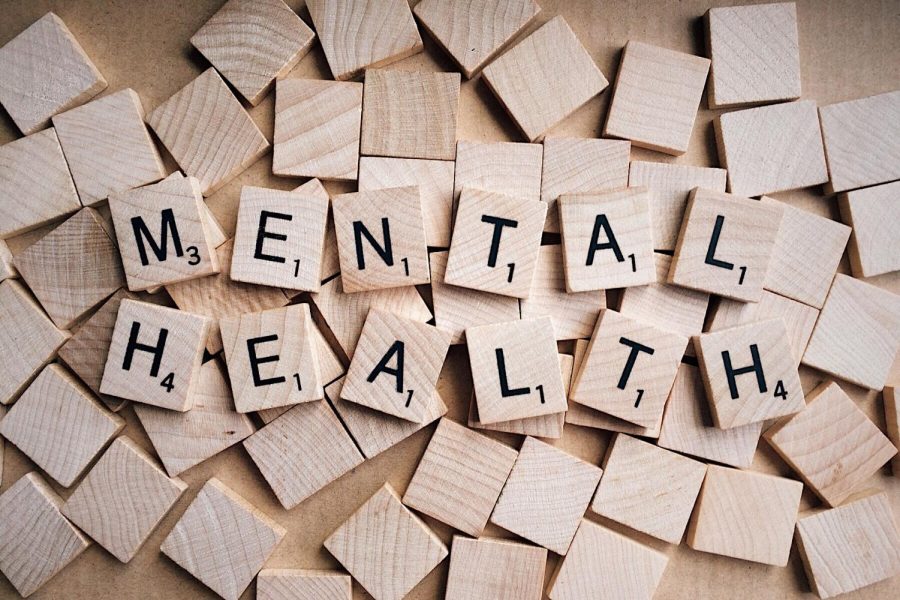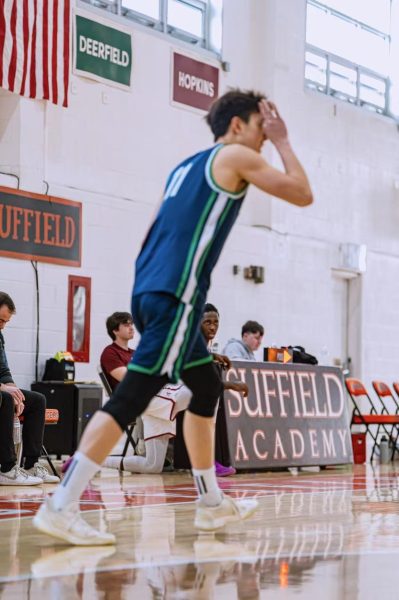Remote Learning and Its Impact on Mental Health
As we switch back to online learning and return to our homes, our mental health is getting put to the test once again.
Winter makes it more difficult to find Covid-safe activities, leaving us with more boredom and less to do. Locally and globally, our community will face various mental and emotional struggles as the pandemic continues and we’re now — again, after returning to campus for first trimester — studying remotely.
According to the CDC, the stress and frustration that comes along with Covid is completely natural and to be anticipated for everybody of all ages. Making time for enjoyable activities, such as running, gaming, or meditating, are easy mental health boosts. Additionally, staying connected with friends through the phone and sticking to a normal routine are easy ways to stay in good spirits.
“Adolescents depend on their friendships to maintain a sense of self-worth and to manage anxiety and depression,” according to a study conducted by The New York Times. From the same study, more than one-third of students reported feeling increasingly depressed or upset in more recent months.
Covid has run rampant in cities across the globe, making it extremely difficult to socialize and keep normal lives. CC Gray, a senior from Washington D.C., enjoys being home, but is sad she can’t really socialize with anybody outside her immediate family.
“It is nice to be home, and this is a huge break, but I am pretty upset because I miss my friends and can only see five people back home because of Covid,” she said.
CC explained how the virus is concentrated in one part of her city, and she luckily does not live in this area. Her brother is taking classes in person, but her sister remains online. However, out of safety concerns, her family still barely sees anyone. In regards to online schooling, CC has similar feelings to many students.
“I have a hard time paying attention and bringing myself to do stuff for classes, and it is weird to do because of the disconnect,” she said.
While students in most places in the U.S. have to continue to play it safe, others returned home after Thanksgiving to safer environments. Dom Liu, a senior from Singapore, says, although he’s currently in a 14-day quarantine, being back home is great, Once his self-isolation period ends, Dom said “everything outside is back to normal, everything’s open, just mandatory mask mandates and limited gatherings.”
Even with Covid cases on the rise across the globe, students are still grateful to be back home. Matthew Moreno, a senior from Bermuda, said, “I am definitely happier back home. I get really homesick a lot at Williston. Especially when the weather is gloomy it makes my homesickness worse because Bermuda’s weather is beyond beautiful most of the time.”
On a cultural level too, Matthew talked about the shift between Bermuda and Easthampton, and vice versa.
“Coming back to Bermuda has definitely lifted my mood,” he said. “The biggest shift is that I feel more like myself when I am back in Bermuda. I can talk how I normally do without having to change my accent or how I pronounce/phrase words and sentences, I can finally relax and just be myself. Being back in my culture around my friends and family again are always the highlights of coming back to Bermuda.”
It’s possible there may be another lockdown in Bermuda, however.
“Unfortunately, much like the rest of the world, Bermuda is starting to fear Covid less and less, so rules aren’t being followed as they should be,” Matthew said. “University students are coming back to the island, so cases are rising quickly again. A second lockdown might be happening soon. Let’s hope not.”
Poojaa Prakash Babu, a senior who is remaining on campus during this time, said she “wasn’t expecting much” when she arrived back in the dorm in early December. ”But as soon as I came my door was already decorated by Mrs. Talbot, which was a very welcoming gesture … they are honestly spoiling us so much.”
“Teachers offer activities and bring the students remaining on campus treats throughout the day,” which Poojaa noted as helping improve her mood while taking online classes.
Poojaa makes the most out of having to stay apart from her family, who are back home in Saudi Arabia.
“It’s hard being away from home especially on such a long break since I am a person who usually goes back every Thanksgiving break,” she said. “But the fact that I already got to spend six months at home and knowing it’s my last year here makes me want to make more memories of high school. I miss my parents a lot but I am keeping myself busy and everyone being so nice makes it so much easier.”
While we are physically apart from one another, the school counselors and health services still remain available for use virtually. Joseph Katz, one of Williston’s two counselors, suggest we all do our part in staying in touch with one another.
“I think any way students can stay authentically connected with each other during this time period can have a huge, positive impact on their mental health,” he said. “Staying connected with one another is a way to find joy during this time period and also continue building up the muscles we need in order to reach out when we do need support. We all will need support at one point or another in our lives, and asking for support takes practice.”
Apart from staying connected with our friends, Katz recommends we take steps towards helping ourselves as well.
“Do something every day you enjoy,” Katz said. “I am a big believer that in order to do our best work we also need to take time to do recreational activities we enjoy that are reasonably safe.” On a similar note, there are little things we can all do to help our wellbeing. Katz advised people to “try to maintain a consistent schedule with regards to waking up, showering, eating, and being active.”
Devon Morgan is a 5-year senior from Westfield, Massachusetts. She has played soccer and softball. In her free time, Devon like to go on walks to Dunkin...











